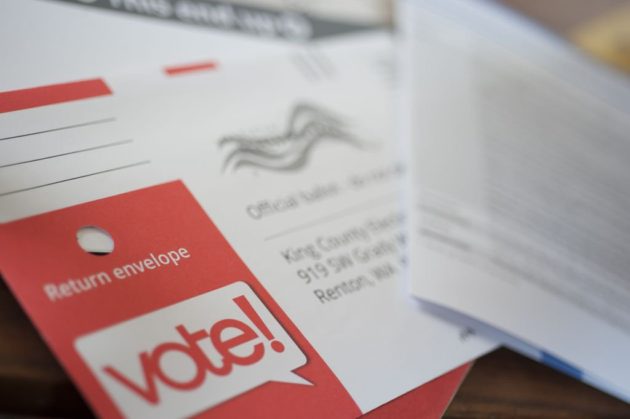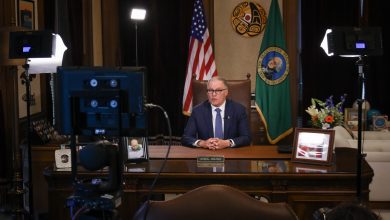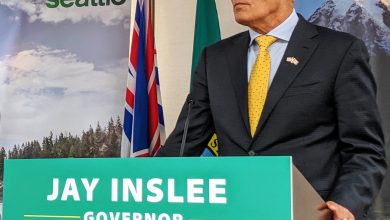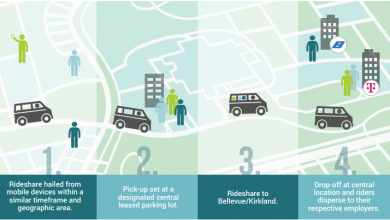Election officials mark successful mobile voting pilot in Seattle area; security experts still skeptical

The first U.S. election to make mobile voting available to all eligible voters went off without a hitch — at least according to the organizers of the pilot. An audit of the election has found that the Seattle-area mobile voting pilot was as reliable as traditional methods, while dramatically increasing turnout in the King Conservation District Board of Supervisors election on Feb. 11.
But experts in the security community remain skeptical of online voting as election officials across the country begin embracing the technology.

For the record, the historic election was won by beekeeper Chris Porter, with 5,012 votes. Runner up Stephen Carl Deutschman received 1,146 votes, and 64 ballots were cast for write-in candidates.
The pilot was a collaboration between the King Conservation District — a resource-management organization operating under Washington state authority — and King County Elections, Tusk Philanthropies, Democracy Live, and the National Cybersecurity Center. Democracy Live is a Seattle-based company that makes mobile ballots and other election tools.
The National Cybersecurity Center is a Colorado-based think tank that launched in 2018. The organization conducted the audit of the King Conservation District election and discovered 93.77 percent of voters opted to cast their ballots online.
The electronic signatures required to submit online ballots had an approval rate of 99.63 percent, according to the audit. With 6,280 ballots submitted, voter turnout doubled compared to last year’s King Conservation District Board of Supervisors election, Tusk Philanthropies said. That turnout rate could be driven, in part, by the increased publicity the election received due to the mobile voting pilot.
“One of the things we were really interested in learning, going in, was with people using either their stylus, their finger on their device, or a mouse … we were really interested to see how that signature comparison would work out,” said Kendall LeVan Hodson, King County Elections’ chief of staff. “It was really pretty consistent. Typically we see 1 to 1.5 percent of ballots have some sort of signature issue, whether a voter forgot to sign or their signature didn’t match. This was in the lower end of that spectrum for this election.”
Washington state traditionally operates on a vote-by-mail system, and election officials are trained to compare ballot signatures to their records. When the mobile voting pilot was announced, it sparked concern that those officials would have to lower their standards or throw out a higher number of ballots because electronic signatures don’t always match handwritten ones.
“We definitely used the same standards,” LeVan Hodson said.
Previously: We voted with a smartphone in a Seattle-area election, and this is what we discovered
The numbers suggest that the mobile voting pilot was a success, but some election security experts say they don’t tell the whole story. Eric Mill, a technology product manager who specializes in security, said that a more thorough examination of security is needed before the technology expands to other elections. Mill previously worked as a Senate staffer focusing mainly on election security.
“Democracy Live could give people more confidence in their systems, and in mobile voting generally, if they were performing sufficient security auditing and analysis on their components,” he said. “We have to know how an election, with their systems, will go when things don’t go right, when they have sophisticated groups attacking their system.”
Mill is concerned that the audit published by the National Cybersecurity Center does not include an assessment of how Democracy Live and election officials would respond if there were an attempted hack.
“When it’s just a tiny pilot, there’s not a whole lot of value for somebody conducting an attack on that election that would make it worth that risk,” he said.
Voters participating in the mobile voting pilot entered their names and birthdays to verify their identities and pull up their Democracy Live online ballots. They cast their votes using a smartphone or other internet-connected device and then signed electronically.
“We have to assume that names and birthdays and images of signatures and Social Security numbers are all purchasable on the black market, and fraudulently registering voters can be done in automated ways that aren’t easy to distinguish from real human registration,” Mill said. “If someone wanted to go get this information for voters in, for example, a few key counties in a swing state, that would be something within range for motivated groups and individuals to do.”
Prior to the King Conservation District Election, mobile voting was primarily used for military and overseas voters. But that is starting to change thanks to Tusk Philanthropies. Bradley Tusk, a former political strategist and early Uber investor, is bankrolling the Mobile Voting Project, a campaign to expand online voting across the country.
In some mobile voting pilots, Tusk Philanthropies has enlisted Voatz, another developer of online ballots. Some counties in Washington and Oregon have used or are planning to use Voatz in primaries elections, including the 2020 election despite warnings from MIT researchers about the security and privacy of the app.
Last month, Democracy Live CEO Bryan Finney told GeekWire that his company is testing mobile voting slowly and purposefully in small elections before scaling up.
“Unless we start now and start small, start responsibly, we’re never going to get there,” he said. “That’s in part the intent of this, to better secure ballot transmission and start to speak the language of the next generation of voters.”
“Unless we start now and start small, start responsibly, we’re never going to get there,” he said. “That’s in part the intent of this, to better secure ballot transmission and start to speak the language of the next generation of voters.”
Conclusion: So above is the Election officials mark successful mobile voting pilot in Seattle area; security experts still skeptical article. Hopefully with this article you can help you in life, always follow and read our good articles on the website: Ngoinhanho101.com





